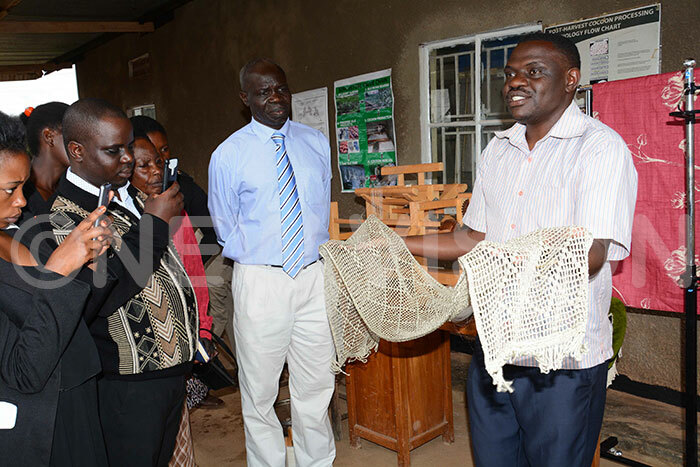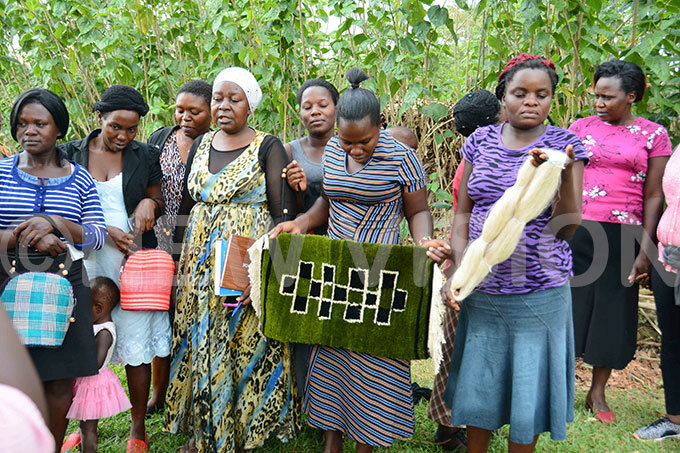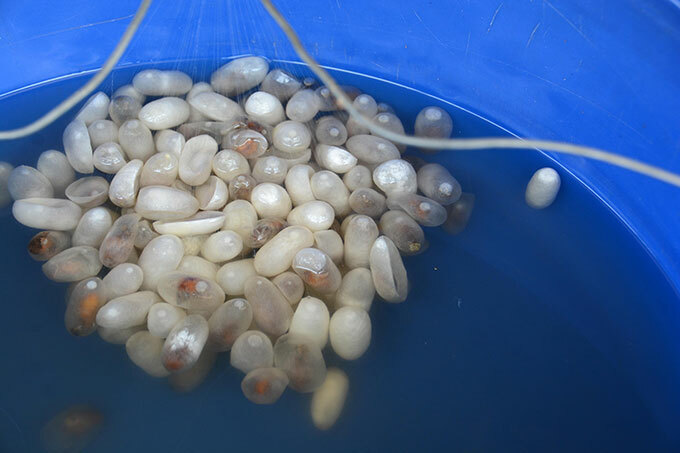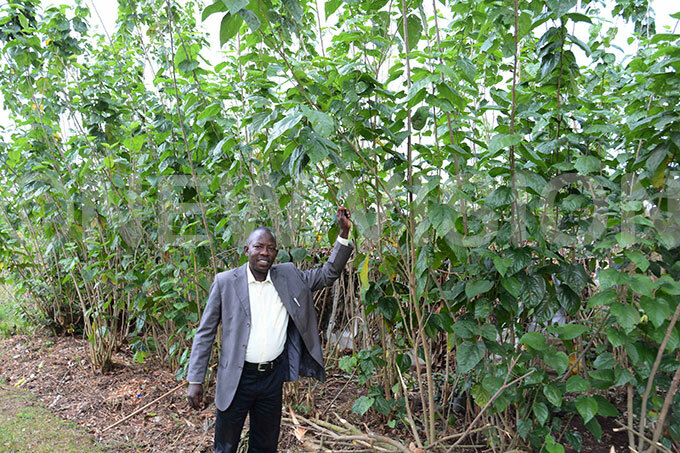Women urged to engage in silk production to fight poverty
Feb 20, 2018
According to the principal entomologist at the ministry of agriculture, animal industry and fisheries, Christine Asaba, silk is a high value commodity for export.

The women have been urged to engage in silk production to fight poverty.
According to the principal entomologist at the ministry of agriculture, animal industry and fisheries, Christine Asaba, silk is a high value commodity for export.
She said her department of entomology at the agriculture ministry is positioned to promote silk industry in the country.
 A trainer Patrick Semambo shows a silk cloth to Frederick Luyambasi, commissioner entomology with Ministry of Agriculture
A trainer Patrick Semambo shows a silk cloth to Frederick Luyambasi, commissioner entomology with Ministry of Agriculture
Asaba appealed to women to engage in mulberry growing because it has potential to generate income for both rural women and entrepreneurs as well as jobs creation for the unemployed youth.
She expressed concern that silk production in the country is still low and of poor quality.
Silk is an animal protein fiber produced by certain insects to build their cocoons and webs. Many different types of silk are produced by a huge variety of different types of insects other than moth caterpillars.
 Women displaying silk products
Women displaying silk products
She attributed low production to the tedious processes involved right from mulberry planting, to silkworms rearing as the later feeds on mulberry and inadequate technology as well as lack of funding.
The silk is woven into textiles and the products include silk clothes, silk handbags among others.
The agriculture official was speaking during the training of women and members of Kawanda Silk Crafts Association at Sericulture Centre in Kawanda Agricultural Research Institute.
 Cocoon of silk in reeling process at Sericulture Centre in Kawanda
Cocoon of silk in reeling process at Sericulture Centre in Kawanda
According to the principal commercial officer of Wakiso district, Moses Mabala silk products are in high demand in developed countries and within the Common Market for Eastern and Southern Africa (COMESA) which the women should take advantage.
Frederick Luyimbazi, commissioner entomology at the ministry of agriculture emphasized the need to sensitize and mobilize the communities on the value of silk production.
 Senior entomologist at ministry of agriculture, Henry Lule shows the mulberry plants at Sericulture Centre in Kawanda
Senior entomologist at ministry of agriculture, Henry Lule shows the mulberry plants at Sericulture Centre in Kawanda
Henry Lule, senior entomologist urged the trainees to also train others in their communities to embrace mulberry growing.
He explained the sericulture value chain beginning from mulberry garden to silk worm rearing, cocoon production, cocoon reeling, raw silk yarn and finished silk products.
